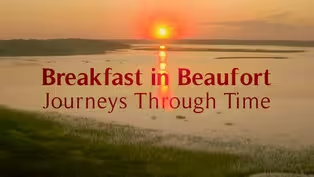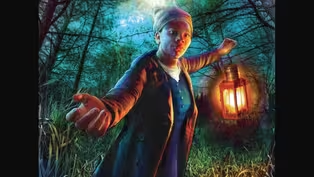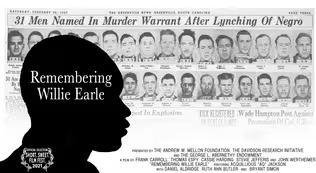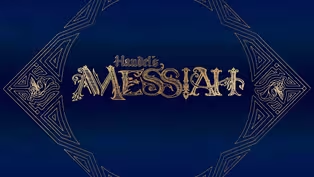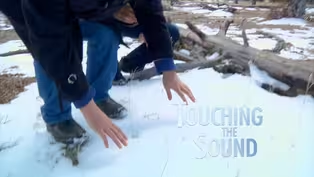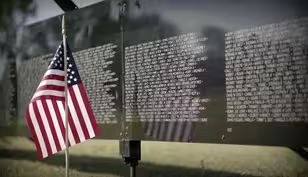
A Charleston Tour
Special | 13m 29sVideo has Closed Captions
Alphonso Brown founded Gullah Tours in 1985.
A Charleston Tour tells the story of Alphonso Brown, a local tour guide who, in 1985, founded Gullah Tours, the first tourism company in Charleston, South Carolina, to emphasize the region’s Black history.
Problems playing video? | Closed Captioning Feedback
Problems playing video? | Closed Captioning Feedback
SCETV Specials is a local public television program presented by SCETV
Support for this program is provided by The ETV Endowment of South Carolina.

A Charleston Tour
Special | 13m 29sVideo has Closed Captions
A Charleston Tour tells the story of Alphonso Brown, a local tour guide who, in 1985, founded Gullah Tours, the first tourism company in Charleston, South Carolina, to emphasize the region’s Black history.
Problems playing video? | Closed Captioning Feedback
How to Watch SCETV Specials
SCETV Specials is available to stream on pbs.org and the free PBS App, available on iPhone, Apple TV, Android TV, Android smartphones, Amazon Fire TV, Amazon Fire Tablet, Roku, Samsung Smart TV, and Vizio.
More from This Collection
Find independent producers who have submitted programs to South Carolina ETV.
Breakfast in Beaufort: Journeys Through Time
Video has Closed Captions
A group of wise men, ranging in age from 84 to 101, gather weekly for coffee and breakfast. (26m 45s)
Harriet Tubman | From the Railroad to A Spy
Video has Closed Captions
Journey through the events and details of her incredible life story that are seldom told. (56m 46s)
Video has Closed Captions
On February 17, 1947, 24-year-old Willie Earle was brutally killed in South Carolina. (17m 13s)
Selections from Handel’s Messiah
Video has Closed Captions
Handel's Messiah performed by the Bob Jones University symphony and choirs. (58m 4s)
Video has Closed Captions
TOUCHING THE SOUND traces the artistic development of young pianist Nobuyuki Tsujii. (56m 46s)
Providing Support for PBS.org
Learn Moreabout PBS online sponsorship♪ "Stand By Me" by Ranky Tanky ♪ - Well, I call my tour Gullah Tours because I speak Gullah.
Gullah is a language Gullah was recognized language ever in 1939.
Did they bother to tell us anything about it?
No.
Just made us think that we were speaking bad English.
♪ "Ranky Tanky" by Ranky Tanky" ♪ My name is Alfonso brown.
What I do, I have a company it's called Gullah Tours and I had that ever since 1985.
Those who are writing history tend to cover things that they don't want to be shown.
And I bring all that to the forefront.
And I'm correcting it as I pull out of history books.
Always be aware of who's writing history.
- I'm from Rantowles.
Rantowles is about 10 miles south of Charleston.
I was born and bred out there.
I know I love it now, but at that time I didn't know why I love it.
It was just home for me.
My grandparents raised me and their parents were slaves when freedom came.
And so therefore what they know as adults of slave children is what I know.
You know, that spirit of slavery is in them too.
And it is also in me.
- In West Africa all children are raised by their grandmothers.
That's traditionally African and it hasn't changed between West Africans and African American women here today.
- So when these individuals of African descent that came from what we call today the West Coast, the Windward Coast, the Gold Coast, the Rice Coast, arrived here in the New World, many of them had never encountered each other.
- And because of different diseases that slave owners did not have immunity to and actually slaves did, they left a lot of the slaves out on the islands after rice harvest.
And because of that they were able to preserve the dialect.
And so Charleston is the only area that has an African Creole language.
- What would grow out of this melting pot with what we know today as Gullah.
- Superstitions, the spirituality, the language itself are all parts of Gullah-Geechee culture.
- When I was younger, having an accent, being Geechee was looked down upon as speaking bad English.
You were ignorant.
- Throughout my childhood and early adulthood being identified as Gullah was not an identifier that was used.
- And it wasn't until after we start using that word that we realized, oh, we fit all the categories to that word.
- Some of these traits we did naturally or they were presented before us, but they were never taught to us from a specific way of saying, this is an Africanism.
- The school I went to was a little three room school.
And we walked to school.
The white kids rode the bus to school.
Yeah.
And we got, when the white kids all finished with the old books, we got all their old books.
And it was printed up with what they thought should be there.
You see a glorified Confederacy.
Denmark Vesey in the history book?
No!
♪ My soul's gonna sit up in the kingdom ♪ ♪ And it's alright ♪ - And I finished high school.
I was 14.
When I went to South Carolina State I can't express how fine those teachers were and patient with you.
They see if you wanna work, they'll work with you to death.
They'll work with you.
And that's what I like most about going to State, a black school.
(muffled protesting voices) My sophomore year, we demonstrated downtown in Orangeburg.
And I can remember we marching along and marching along and all of a sudden I heard "You're under arrest" "you're under arrest" When they got to me I looked at my friend and I said, "what did he say?"
He said we under arrest.
Fellas, went to Columbia State Correctional Institution.
And girls went to a little jail in Orangeburg called the Pink Castle.
And so when my mama, my dad, my stepdad heard about it.
Oh, they- "We didn't send school to demonstrate" "You crazy, boy, what's going on?"
I said, "Don't worry about it, ain't nothing wrong.
I mean, all the teachers are in jail too."
So this whole campus closed down.
♪ "Stand By Me" by Ranky Tanky ♪ (various helicopter sounds) And I got the letter that say, "You need to serve in the military."
I spent about a year and three months over in Korea.
I didn't think about equal rights at home.
It wasn't until I had an awakening experience.
I was on duty at the aid station.
When we sitting around, lollygagging around, you know.
Then the radio was on.
Then they made a announcement on the radio that Martin Luther King was shot.
And the thing that really woke me up was when those guys who I thought was my friends or who I'm working with as friends, they toasted it.
It was like a veil came from over my eyes.
I said, who are these people?
You know, who are these white people who I thought called friends.
If we get in a battle, can I depend on these people to look after me if I get in trouble?
It all came back to me.
Oh, I see what mama was talking about.
Stay away from them people, you can't trust them people.
They're bad, bad people.
♪ "She said come back home, boy."
♪ ♪ "Come back home" ♪ I got back home in March 1969.
When I got home I can remember hugging and kissing everybody.
My next door neighbor, he was assistant principal.
And he came out, he saw me.
He said, "Hey boy, how you doing there?"
"Hey you got back just in time."
"Our band director just walked off the job, so we can start you right away."
I said, okay then.
It was a Thursday.
So I said, well, give me until Monday then.
And so I went to Rivers and I think I made a difference.
And I loved it there.
I loved it.
I retired from there.
♪ Join the band, come along, come along, come join the band.
♪ ♪ Already join the band ♪ ♪ Come along, come along come join the band.
♪ - I always like showing people around when family members came into town.
It became an enjoyable thing.
I said, well I'm enjoying this.
I'm enjoying this.
So one time I was down at the near the Francis Marion Hotel and talking about this hotel and blah, blah, blah.
And talking about that.
And this white guy walk over to me and asked me, "Are you a tour guide?"
I said, "No, is there such a thing?
♪ "Join the Band" by Ranky Tanky ♪ To become a license tour guide you go down to City Hall and you purchase this large book.
Had a few things about Blacks on that text.
When I got my license I started doing what the other tour companies did.
And so I can remember one day this couple, and I took them in my car and going around Charleston caught myself doing a nice tour and everything.
When I finished, I took them back to the house and they look at me and said, "Well, what did the Black folks do?"
"You didn't say nothing about Black, what, they didn't do anything in Charleston?"
"That's why we took your tour, to find what the Blacks did in Charleston."
I didn't know what to say.
I was so embarrassed.
All I know is that I didn't do any tours from that time for must've been a month.
I got in my car and I went to the library downtown and studied.
Everything's there in the library, nothing hidden.
I don't expect no other white tour guide to go down to the library and find things about my Black history.
They ain't supposed to do that.
They ain't gonna do that.
But I'm supposed to do that.
And I did.
♪ "Turtle Dove" by Ranky Tanky ♪ I go to Mount Zion down on Glebe street.
And after at the 7:30 service you had more older members, seniors that were going to the 7:30 service.
Oh, we had a breakfast too after service.
Those ladies and men will sit around that table and talk.
Oh, they tell you things.
And I wrote 'em down.
All the history.
♪ "Stand by Me" by Ranky Tanky ♪ I think I got the best route ever.
We didn't have a Black history tour.
I was the first one out there like that.
- [Mike Allen] These are the places that are part of our American experience that matter to all of our lives.
At the end of the day, it's still American history.
- Listen, we haven't reconciled with this history.
We haven't.
It was swept under the rug.
If we don't know this history, we do not know our country.
- Our major issue today is the lack of information about self.
And history.
- [Alphonso] And whites who take my tour, they don't feel, I don't make them feel guilty.
They didn't do it.
I don't want them to feel guilty.
I want them to know what happened though.
It's something that's innate.
It's something that's in you that you that you never forget your roots.
You know, you can't help it, you cannot forget it.
You can try, but it doesn't work that way.
Cause it's a part of your being, your existence, your soul.
♪"It is Well with My Soul" by Horatio Spafford & Philip Bass ♪ - [Alphonso VO] It feels as though I'm doing something.
I'm fulfilling what God wants me to do.
"It is well with your soul."
- [Alphonso VO cont.]
I fought The Civil Rights Movement.
I marched, went to jail, everything.
Now I'm doing another phase of The Civil Rights Movement, a different kind of movement.
(organ music grows louder) - Y'all gotta pay for that.
(laughing) ♪ "Goodbye Song" by Ranky Tanky ♪
Support for PBS provided by:
SCETV Specials is a local public television program presented by SCETV
Support for this program is provided by The ETV Endowment of South Carolina.
